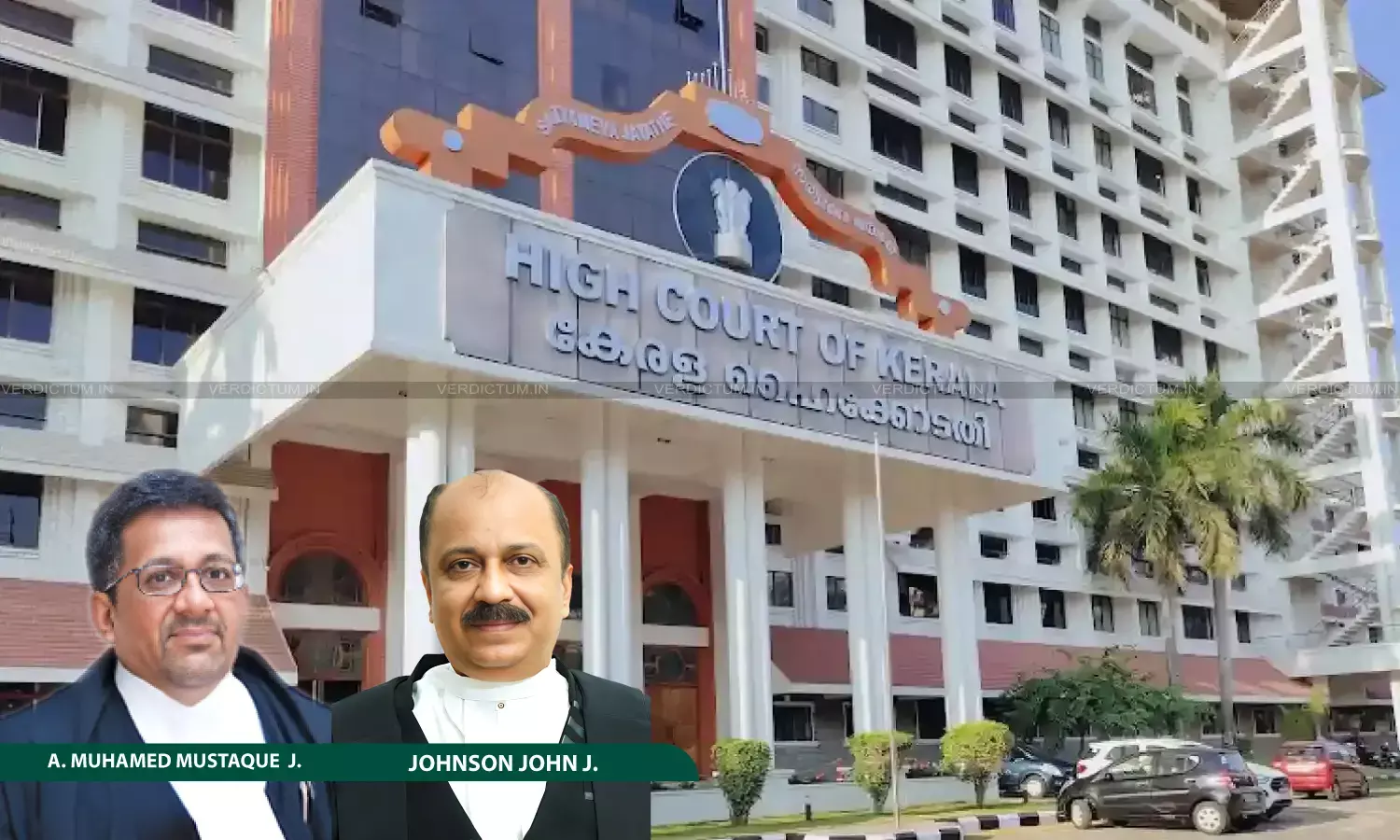Opportunity Should Be Given To Reform Him: Kerala High Court Directs Compassionate Appointment Of Man Involved In Criminal Cases
The Kerala High Court directed the compassionate appointment of a man who was involved in criminal cases and who belonged to the Ezhava community, a backward community.

Justice A. Muhamed Mustaque, Justice Johnson John, Kerala High Court
The Kerala High Court has directed the compassionate appointment of a man who was involved in criminal cases.
The said man belonged to the Ezhava community, a backward community whose mother was a part-time sweeper in the Police Department.
A Division Bench of Justice A. Muhamed Mustaque and Justice Johnson John remarked, “The petitioner in this case was offered employment under the compassionate scheme. That itself speaks about the economic and financial status of his family. The character of the petitioner cannot be analysed in isolation or devoid of the broader context of his social realities. Therefore, an opportunity should be given to reform him. Denial of such opportunity based on a static notion of his character will breed alienation and will push a person like the petitioner to further marginalisation.”
The Bench added that the State, in such instances, must refrain from treating the withdrawal of employment as a punitive act and instead embrace its constitutional obligation to pursue redemptive and rehabilitative measures.
Advocate Kaleeswaram Raj represented the Petitioner while Senior Government Pleader (SGP) B. Unnikrishna Kamal represented the Respondents.
Case Background
The Petitioner’s mother who was a part-time sweeper in the Police Department had passed away in 2017, while she was in the service. The Petitioner was offered a job as a Driver (Police Constable) under the compassionate employment scheme. The family satisfied the eligibility criteria for appointment under the said scheme. The Petitioner did not possess a clean image and was involved in criminal cases.
He was aged 37 years old and was involved in criminal cases since 2012. He was able to walk free on payment of a fine in one case and suffered a day’s imprisonment and fine in another. In three cases, he was acquitted and the last case involved a matrimonial dispute and ended in a compromise. He had no access to the portals and corridors of higher learning, like many who belong to the lower strata. He had no dream about his future. He was unsuccessful before the Tribunal.
Court’s Observations
The High Court in the above context of the case, observed, “We must interpret and apply the law beyond its literal words and read it through the lens of justice. Every law is made with an aim to create a just society. A law that loses its connection to justice becomes hollow and would be regarded as a technical tool. The Government or any authority that wields the power to apply law cannot disregard its intimate relation with justice.”
The Court said that law is enacted as an expression of the collective consciousness, embodying the ideals of equality and justice and while the law may be neutral in its text and bind all equally, its application must not result in outcomes that undermine constitutional values.
“If the enforcement of law leads to injustice, particularly in a manner that strikes at the core principles of equality enshrined in the Constitution, it becomes imperative for a constitutional court to intervene and uphold justice in line with the foundational ideals and values of the Constitution”, it further noted.
The Court was of the view that the post in question is the police driver (Police Constable) and in that context, character cannot be assessed in isolation from that post.
“It does not involve a public interface or exercise of discretion. In that view of the matter, the Government should not resist an opportunity for redemption and improvement, considering his social background”. it added.
The Court also remarked that a person who has not studied much may lack the discernment to understand the true meaning of conviction.
“No doubt, if material information is suppressed, that itself would reflect his character, making him ineligible for public employment. However, if the information sought is not material, such conduct can be condoned considering the educational standard and social background of the person concerned”, it said.
Moreover, the Court reiterated that the employer should adopt objective criteria and has discretion to condone the omission.
Accordingly, the High Court allowed the Petition, set aside the Tribunal’s Order, and directed that the Petitioner shall be appointed within 4 weeks.
Cause Title- Jijin R v. State of Kerala & Ors. (Neutral Citation: 2025:KER:49236)
Appearance:
Petitioner: Advocates Kaleeswaram Raj, Thulasi K. Raj, Chinnu Maria Antony, and Aparna Narayan Menon.
Respondents: SGP B. Unnikrishna Kamal


